UBS Says Americans Are Getting Wealthier. Some More Than Others
Wealth Distribution Matters
Expect the corporate media and President Biden’s handlers to make maximum use of a report out of investment bank UBS showing that Americans grew wealthier last year despite persistent inflation.
While high inflation has made everything from rent to groceries more expensive, Americans continued to build wealth in 2023. The average wealth per adult in the U.S. grew 2.5% last year compared with the year before, UBS's Global Wealth Report 2024, released Wednesday, said.
To be sure, if one looks at the report’s1 summary paragraphs on the United States, one does get a rosy picture of wealth in the US.
The USA is one of very few markets in our sample where wealth growth has accelerated since 2010 compared with the decade before. In the US, as in the United Kingdom, wealth has grown evenly across all wealth brackets.
Our analysis shows inequality in wealth has fallen slightly in the US since 2008; in 2023 it was home to the highest number of USD millionaires.
Is that what the data actually shows? Not exactly.
When we look at Americans’ net worth over the past 30 years, we must absolutely admit that Americans have grown wealthier, regardless of their wealth bracket.
However, as we see just from this graph from 1993 onward, those in the bottom 50% of wealthy Americans not only had the lowest net worth overall, they had the smallest increases over time.
Moreover, the richest Americans saw the greatest gains in net worth.
Nor is this an artifact of the graph. If we look at the period-to-period changes in wealth for just the Biden administration, we see the largest quarter-on-quarter increases in the top wealth percentiles.
The only view where the lower wealth brackets show greater gain is if we index the data using a recent baseline date—such as the start of President Biden’s Reign of Error.
However, there is a caveat to this view. What this data shows is that the lower economic strata had the greatest wealth gain relative to the amount of wealth they possessed initially. Since the lower economic strata had the smallest amounts of wealth at the start of the Biden regime, their wealth increases are naturally represent a larger share of that smaller slice of the pie.
The data is clear, however, that at the start of 2021, the lower economic strata unquestionably had the smallest portions of the nation’s wealth.
However, we should not blindly heap all the blame on the Biden regime. Donald Trump’s term of office does not look much better.
Even the quarter-on-quarter changes show more wealth accumulating in the upper economic strata rather than the lower during the Trump years.
I do want to take a moment to highlight the wealth decrease in Q4 2018.
This decline was the singular handiwork of our ever-clueless Federal Reserve Chairman Jay Powell, who decided in the fall of 2018 to “cool off” the stock market because he felt stocks were overpriced.
Thus we see the impact Jay Powell’s rate hikes tend to have on American bank accounts: he makes them smaller.
About the only saving grace to his ham-handed efforts to crash “cool off” the stock market was that by far the greatest impact came to the upper wealth brackets and not the lower.
The lunatic lockdowns had a similar impact on American wealth.
Ordinary Americans lost their jobs during the lockdowns, while rich Americans lost their stock portfolios.
However, both Trump and Biden must ultimately be understood to be doing little more than perpetuating the wealth imbalances that already existed. If we want to know the origin of those wealth imbalances, we need to look farther back—to the Administrations of George W. Bush and Barack Obama.
There is no denying that under George W. Bush, the rich in the United States got richer, and more so than the poor got richer.
Unfortunately for Democratic talking points, the rich got richer than the poor under Obama as well.
In fact, during Obama’s first term of office, the poorest Americans were the ones who saw the greatest relative decline in their existing wealth.
Even during the Clinton Administration, the top ten wealth percentiles saw their share of America’s wealth increase while the bottom 90 wealth percentiles saw their share decrease.
Looking at the data, the answer to the question “are the Democrats or the Republicans the party of the rich?” is unequivcally “Yes!”
Still, Clinton did only minor damage to the wealth prospects of the lower economic strata in this country. The real assault was the Bush and Obama years that followed.
Nor can recessions be blamed for the decline in poorer people’s wealth. On the contrary, recessions are where we see any sort of correction to the disequilibrium. Apparently an ebbing tide lowers some ships more than others.
The kindest thing to say about Donald Trump’s term of office in this regard is that the lower economic strata gained a marginal share of the nation’s wealth, with the lunatic lockdowns of 2020 doing the most by knocking more off the wealth of the richest Americans.
However, there is no denying that, during Joe Biden’s time in the Oval Office, the lower economic strata began seeing their share of the nation’s wealth decline beginning in 2022.
Where Donald Trump’s term of office was marginally better for the poorer folk in this country, Joe Biden’s time in the White House has been demonstrably worse.
Contrary to the narratives of both political parties—contrary to the narratives of both Donald Trump and Joe Biden—neither political party’s agenda or economic policies have been particularly kind to ordinary Americans.
We do well to remember that Barack Obama campaigned on a theme of wealth redistriubtion, as his infamous exchange with “Joe the Plumber” emphasized.
“It’s not that I want to punish your success,” replied Obama. “I just want to make sure that everybody who is behind you, that they’ve got a chance for success too. My attitude is that if the economy’s good for folks from the bottom up, it’s gonna be good for everybody. . . . I think when you spread the wealth around, it’s good for everybody.”
Yet the data shows that Barack Obama, during his first term of office, redistributed wealth from the lower economic strata to the higher economic strata.
George W. Bush campaigned as a “compassionate conservative” in 2000, proposing a “conservative agenda” that didn’t ignore the poor.
Yet well before Mr. Bush began building his presidential campaign around the words ''compassionate conservative'' -- reshaping the image of his party to follow suit -- a cadre of thinkers on the right had been trying for years to fashion a form of conservatism that rejected the welfare state but did not turn its back on the poor. And with his campaign strategist Karl Rove acting as his guide, Mr. Bush began reading their books and meeting them, even before his first race for governor.
By not ignoring the poor Bush made them relatively poorer.
Nor is it simply the Presidents that are at issue here. For all the rhetoric conservatives such as Ben Shapiro expend on “equality”, they ignore the reality that economic policy in the United States is and has been decidedly unequal.
When conservatives are governing the country, wealth flows primarily to the wealthy.
When progressives are governing the country, wealth flows primarily to the wealthy.
The data shows this. The data proves this absolutely.
About the only time any wealth flows towards the poor at all has been when a populist (Donald Trump) is governing the country, and even that was barely a trickle.
Economists can and will debate endlessly the causes of wealth inequality, and both conservatives and progressives will promote their economic agendas as vehicles for rectifying wealth inequality.
The data says that both conservatives and progressives are full of hogwash and horse hockey.
The historical performance of both conservative and progressive Presidential Administrations going back 30 years in this country has put the lie to both sides economic rhetoric Neither party, neither side of the political spectrum, has shown themselves to be any great friend of working class individuals. Even Donald Trump at best can be said to have been not an enemy of the working class.
What should government economic policy be in this country? How about no economic policy? How about government and politicians leaving the economy alone for a change? Since neither party can be trusted not to screw ordinary Americans when it comes to the economy, neither party should be doing anything pertaining to the economy.
With the Presidential election circus season about to kick off (once the Democrats figure out if Joe Biden is going to be their sock puppet candidate or not), we are going to be subjected to an endless stream of economic proposals and promises. Such is the stuff of which Presidential campaigns are made in the modern era it seems.
Remember that, regardless of which side is making the economic proposals and promises, they are lying to you. Unless you’re already rich, neither party’s platform is likely to be helpful to you.
They haven’t before. Why would they start now?







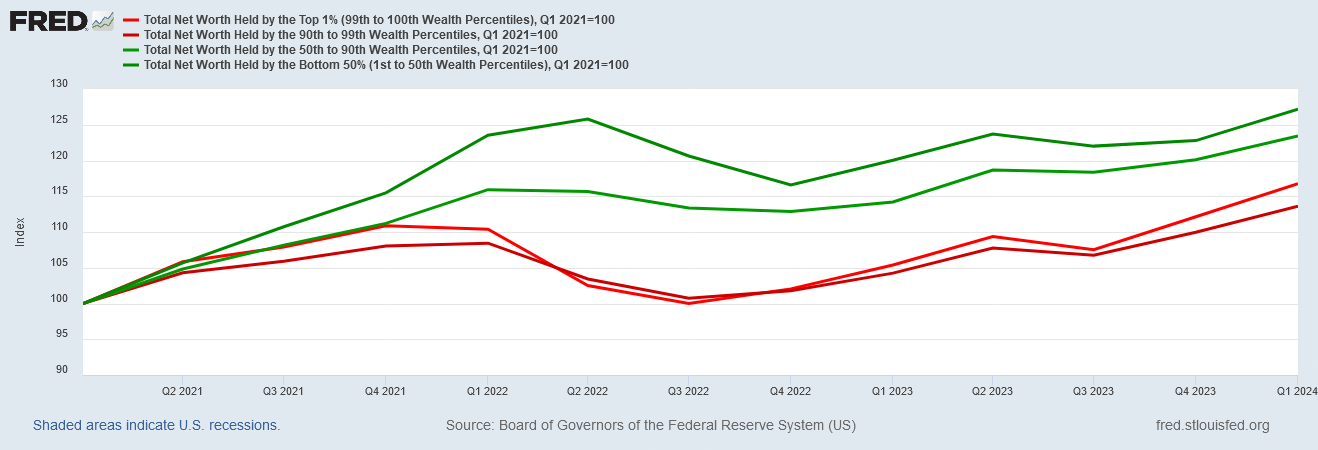
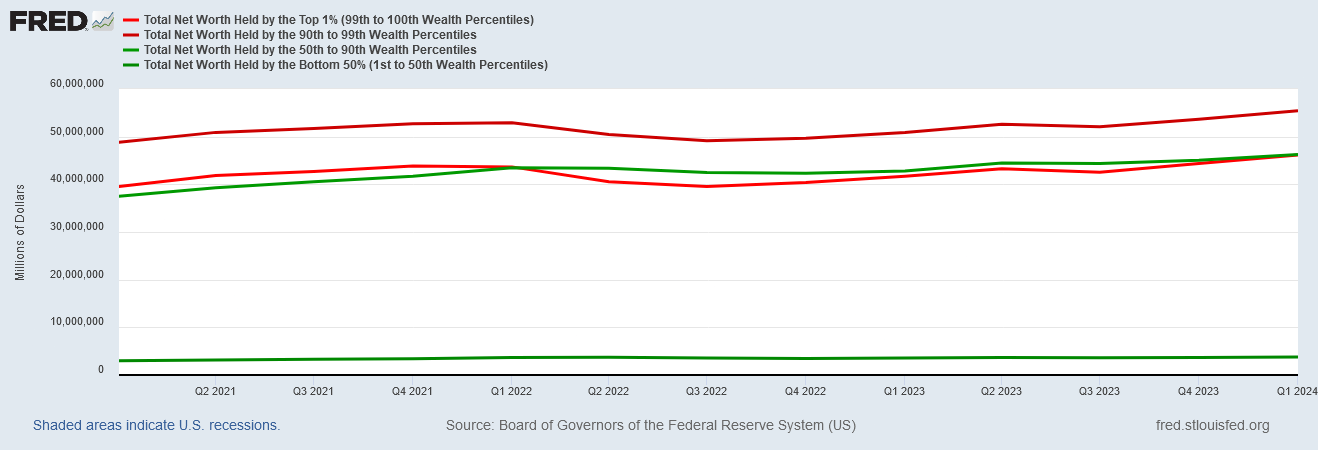
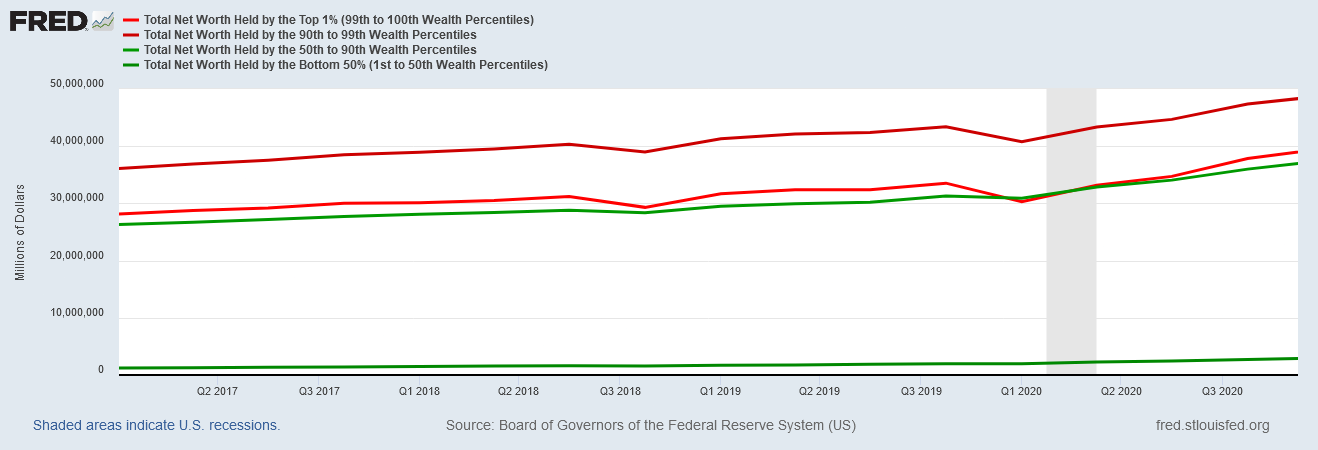
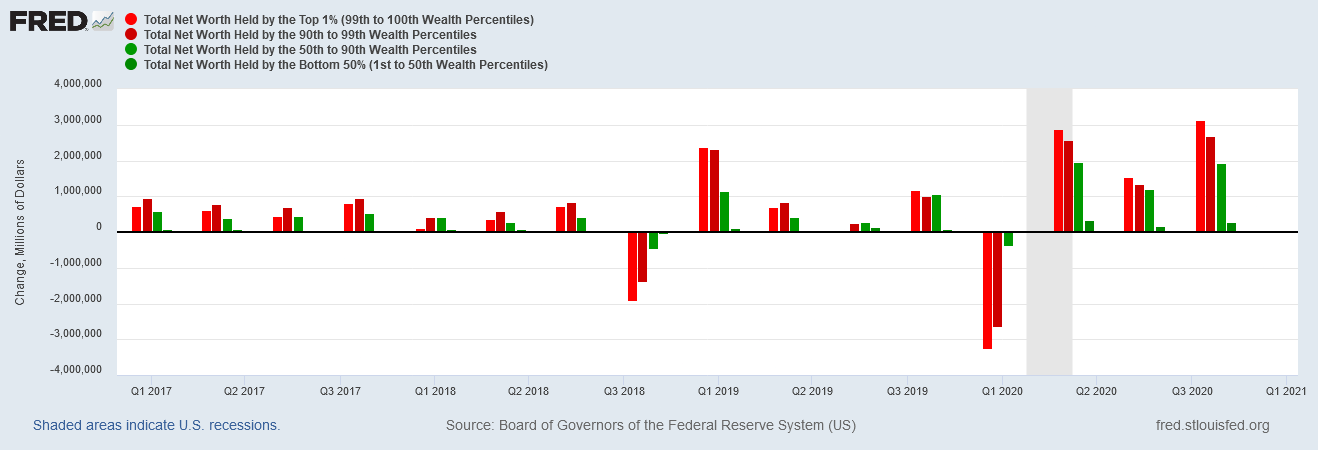
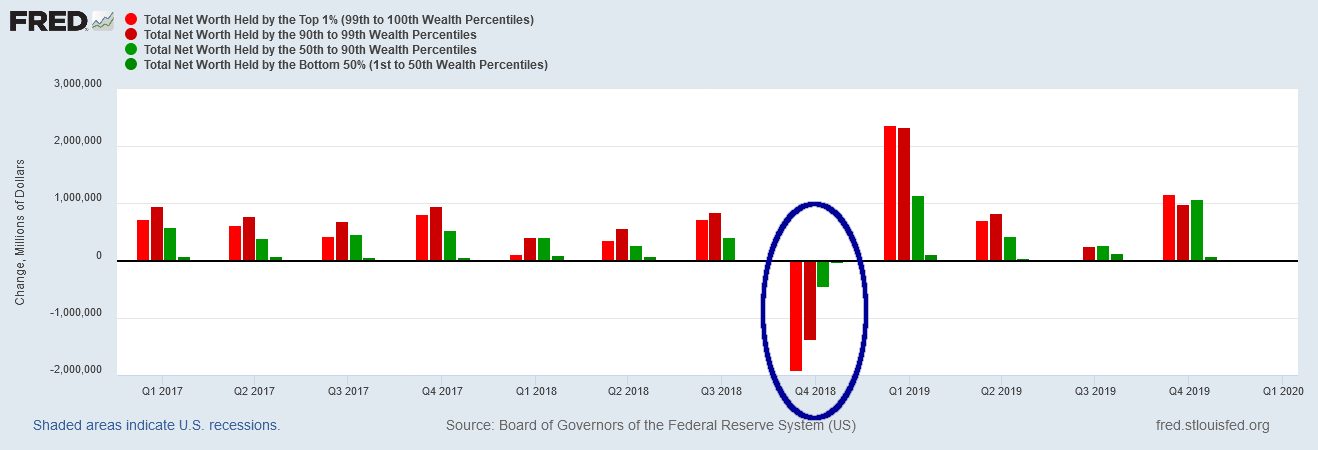

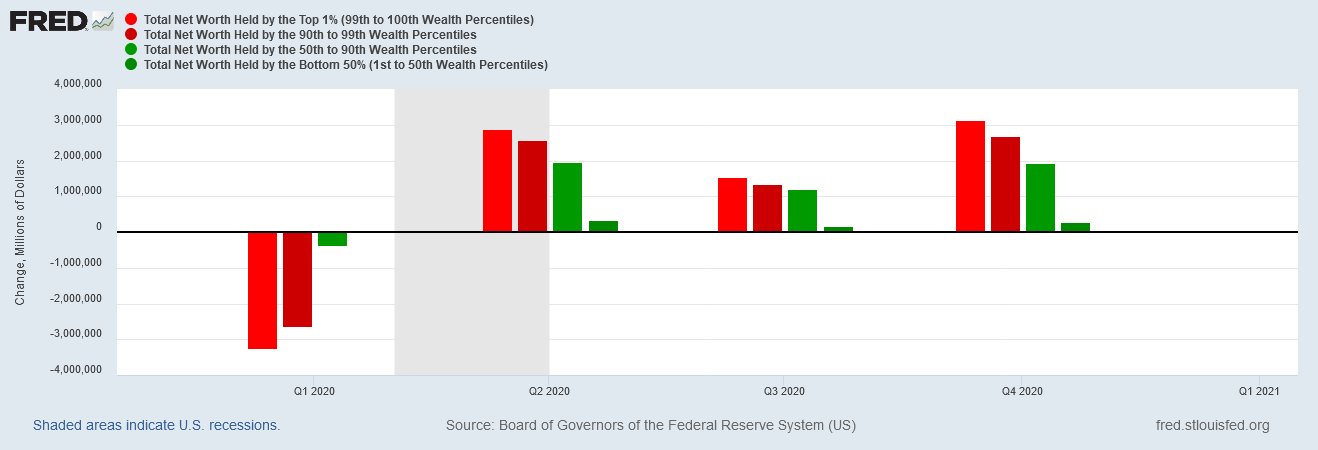

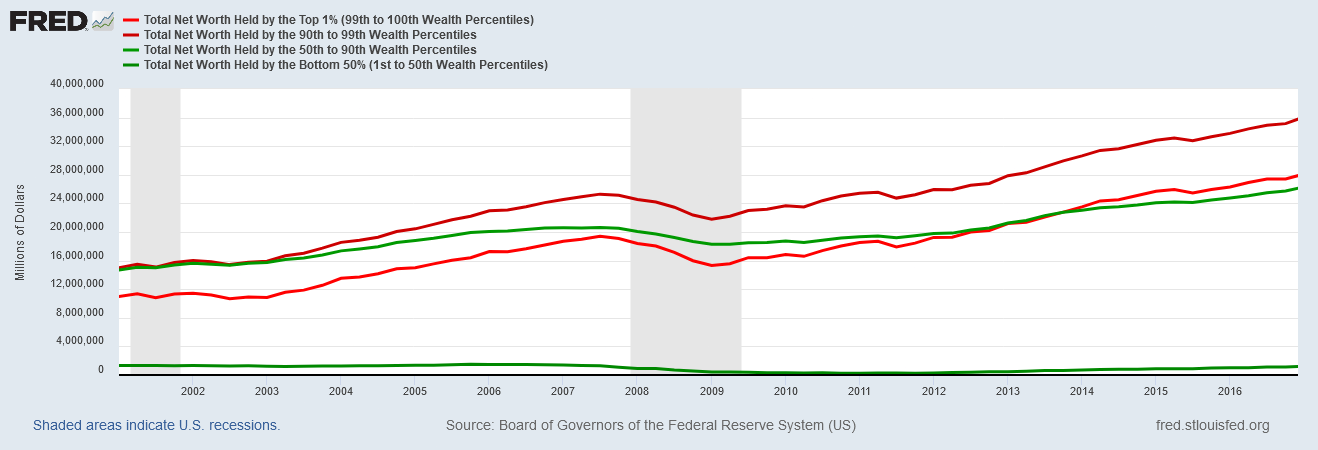
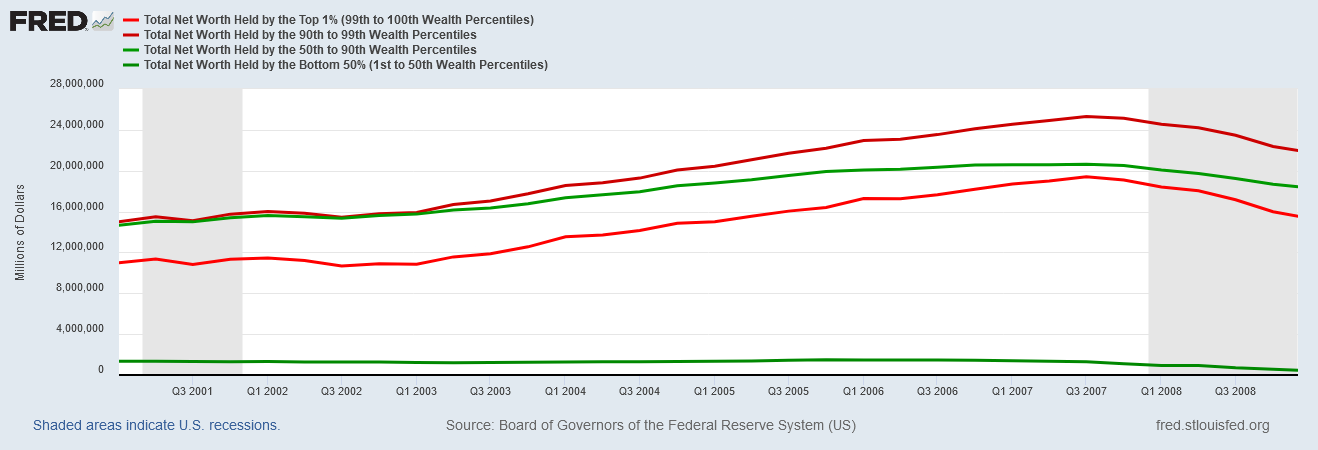

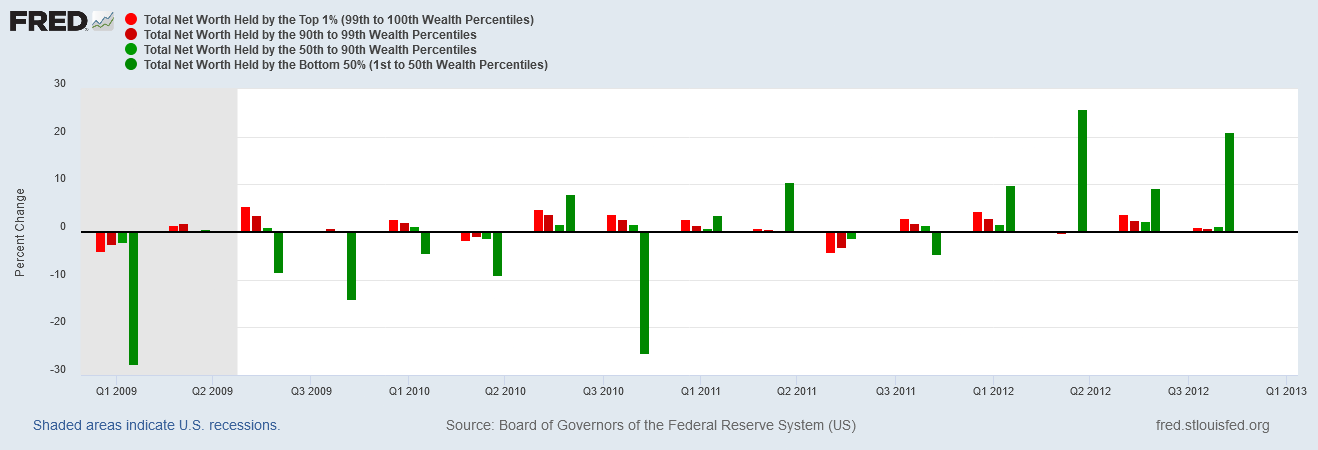




"Barely a trickle" might pay the electric bill for 1 month, 2 if it isn't July.
I will take it!
If Americans have more wealth, it seems that the marketplace desires to obtain larger shares of that wealth for provision of necessary goods and services rather than a lot more goods and services to increase personal comfort